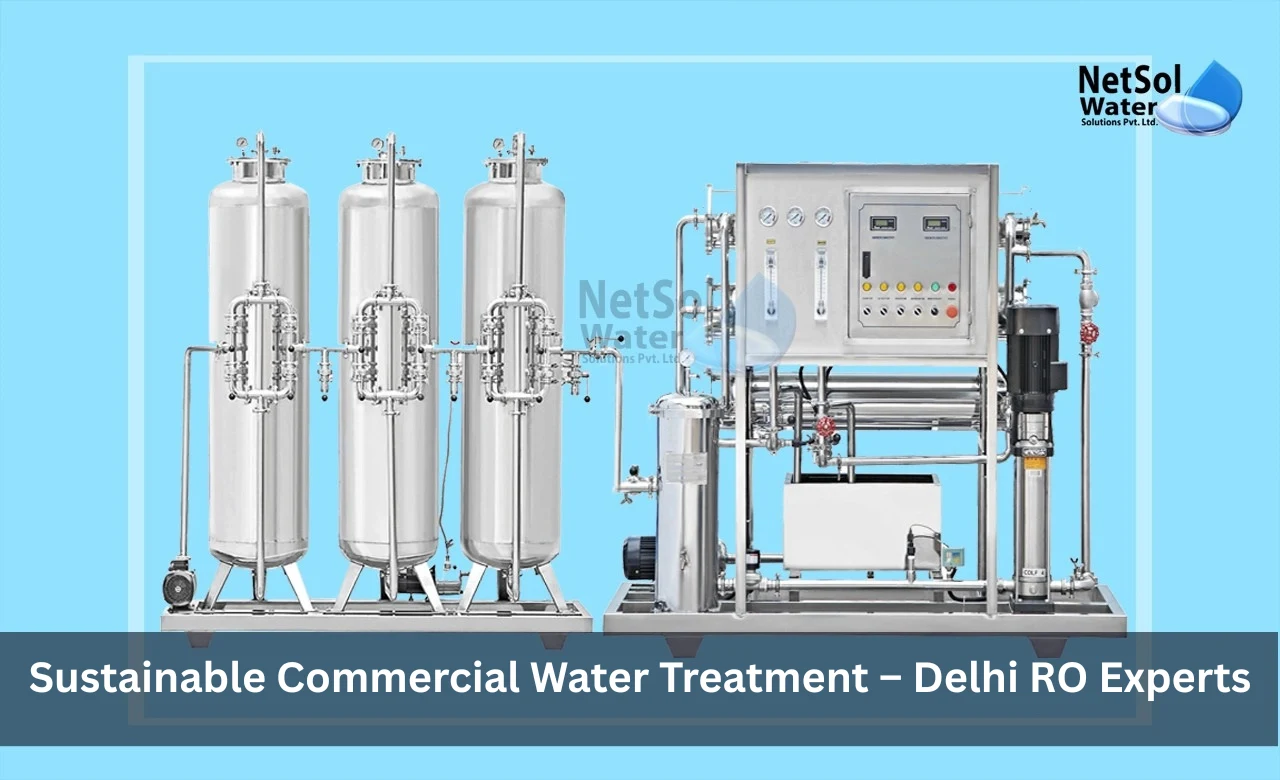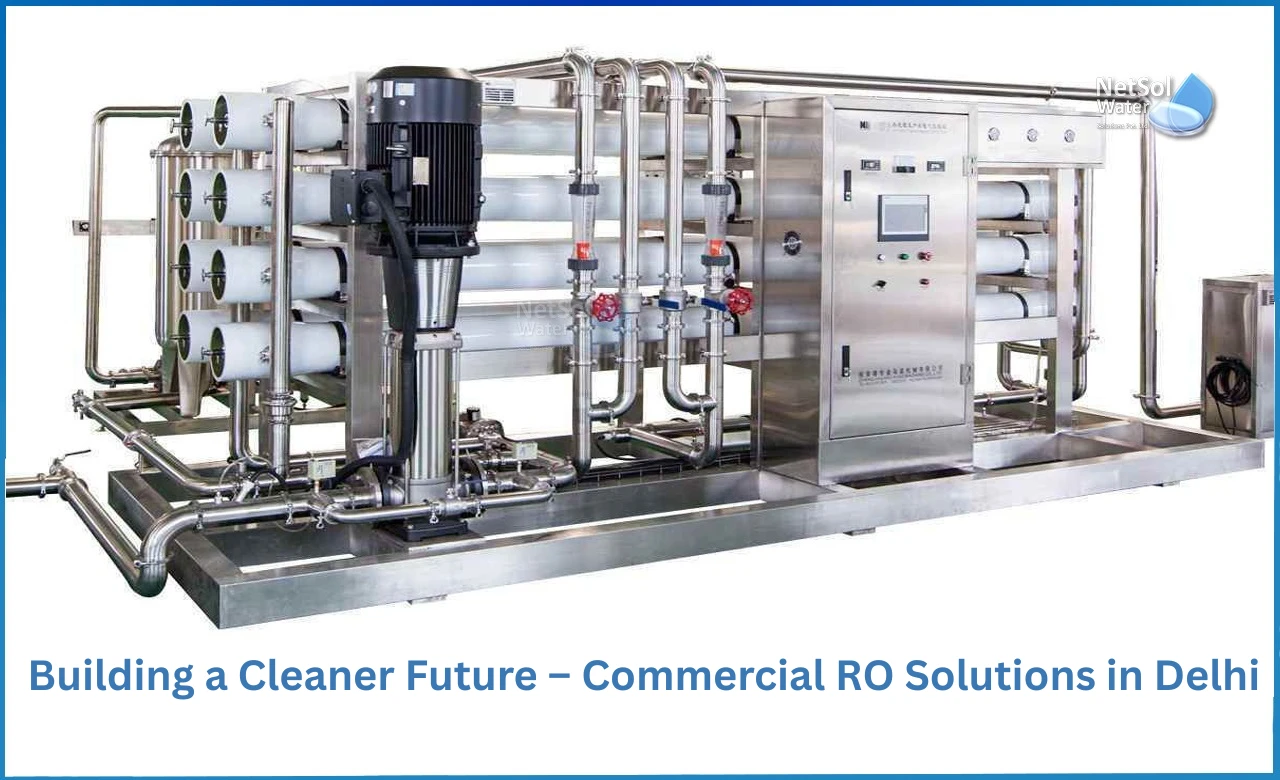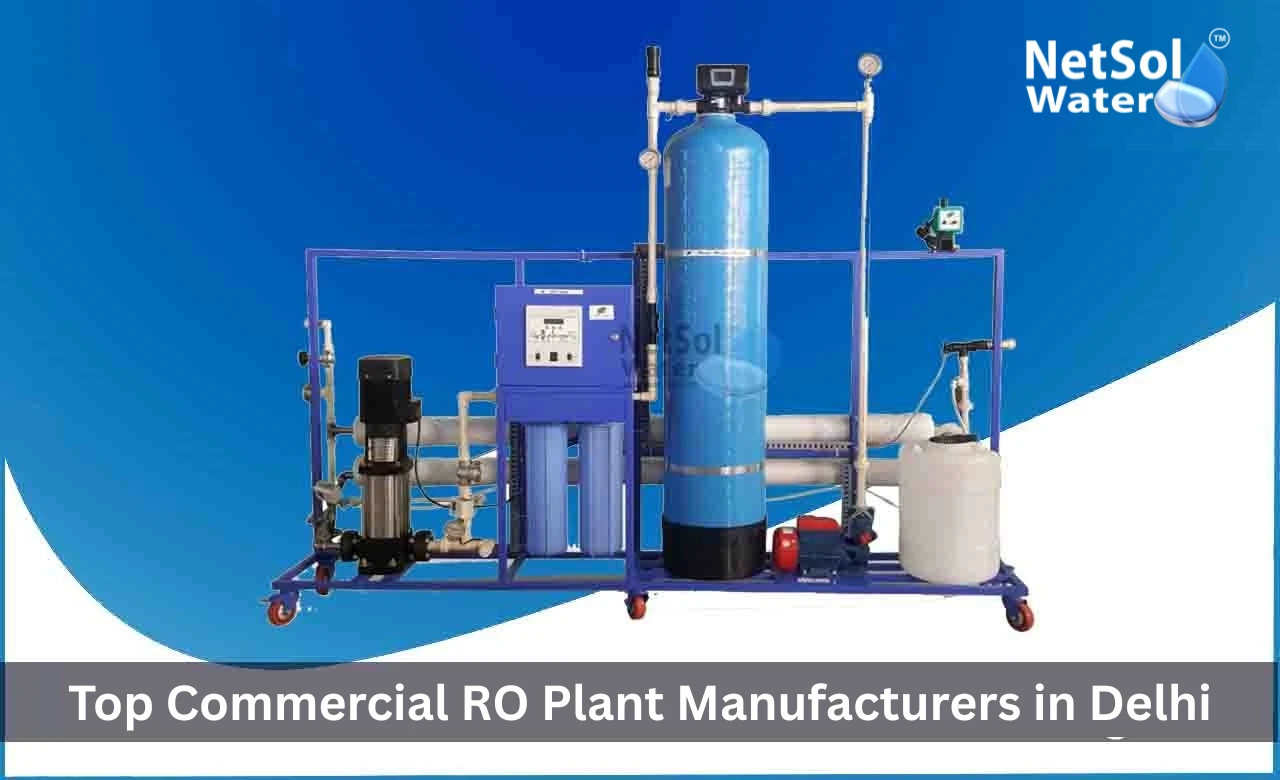Sustainable Commercial Water Treatment – Delhi RO Experts
Businesses need clean water for processes, products and people. They look for reliable solutions to save costs. Commercial RO Plants meet this need. Netsol Water is the leading Commercial RO Plant Manufacturer in Delhi. They bring eco‐friendly methods to treat water on a large scale. They help enterprises run smoothly while caring for the environment. We will explore how sustainable water treatment works.
Sustainable Commercial Water Treatment
Sustainable water treatment lowers energy use and reduces waste. It cuts chemical use and recovers resources. For businesses, this means lower bills and a smaller environmental footprint. Let us have a look on some key aspects of sustainable treatment.
Designing Energy-Efficient Water Treatment Plants
Energy drives every stage of water treatment. Pumps, filters and membranes all need power. Reducing that need saves money and cuts carbon output. Netsol Water uses motors that adjust speed to flow demand. This avoids waste when water use dips. They choose membranes with low pressure needs. These steps form a plant that works smart. It draws only the power it requires. As a result businesses see lower energy bills.
Recovering and Reusing Water and By-Products
Treating water creates brine and sludge. Netsol Water fits units that separate solids for safe use as soil additive. They install brine concentrators that cut discharge volume. They return clean reject water back into the process for non‐potable uses. This cycle slashes fresh water intake. Companies in Delhi can thus turn waste into resource.
Selecting Durable, Low-Maintenance Materials
Plants often sit idle when parts fail or need cleaning. Choosing durable materials cuts downtime. Netsol Water picks corrosion-resistant alloys and robust polymer liners. They fit self-cleaning filters to reduce manual work. This focus on maintenance means smoother operation. It drives steady production without abrupt stops for repair.
Optimizing Chemical Use in Treatment
Chemicals help remove particles and kill microbes. But excess chemicals harm ecosystems and raise cost. Sustainable treatment aims to minimize their use. Netsol Water use online sensors to track water quality and adjust dosing. This careful control keeps treated water safe. It also avoids chemical overuse, thus making Netsol Water a Leading Commercial RO Plant Manufacturer in Delhi.
Advanced Membrane Technologies for Better Performance
Membranes form the heart of commercial RO Plants. Let us have a look on some Advanced Membrane Technologies for Better Performance.
Thin-Film Composite Membranes
These membranes mix a thin selective layer with a sturdy support layer. They let water pass easily while blocking salts and contaminants. Their high permeability cuts pressure needs. This lowers energy use. They resist fouling better than older designs. In practice they extend run times between cleaning cycles. They help plants operate with consistent output and lower maintenance demands.
Antifouling Coated Membranes
Fouling slows plants and forces shutdowns for cleaning. New coatings repel organic matter and microbes. These membranes maintain high flux for longer stretches. They cut cleaning frequency and chemical use. They boost overall plant uptime. For Delhi firms, this means reliable water supply without surprise dips in quality or flow.
Nanostructured Membranes
Membranes built with nanomaterials offer precise pore control. They remove even tiny pathogens and micropollutants. They work at moderate pressures. They deliver very high rejection rates. Using them in key stages ensures the final water meets strict standards. They also stand up to harsh feed water without rapid degradation.
Integration of Renewable Energy Sources
Linking water treatment to renewables adds sustainable value. Let us have a look on how solar and wind can power RO plants.
Solar-Powered Treatment Units
Netsol Water fits solar panels to drive pumps and controls. During peak sun, plants run solely on solar power. They store surplus energy in batteries for night and cloudy days. This cuts grid dependence. It shields businesses from rising electricity rates. It also lowers carbon footprint.
Wind-Assisted Systems
In areas with steady wind, small turbines can supplement energy needs. Netsol Water integrates wind and solar data into the plant control system. It shifts loads to the cheapest available source in real time. This hybrid approach ensures continuous, low-cost power.
Conclusion
Sustainable Commercial Water Treatment brings real benefits. It cuts energy use, recovers resources, reduces chemicals and boosts reliability. Netsol Water stands out as the leading Commercial RO Plant Manufacturer in Delhi. They modify plants that meet business needs while caring for the planet. To explore how these solutions can work for your enterprise, reach out today for more information or to request a consultation. Trust Commercial RO Plant Manufacturer in Delhi experts to deliver water treatment that lasts.
Phone: +91-965-060-8473
Email: enquiry@netsolwater.com










